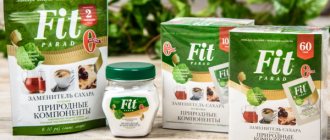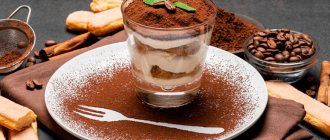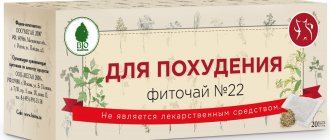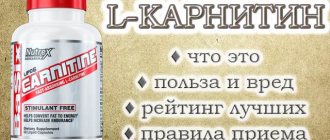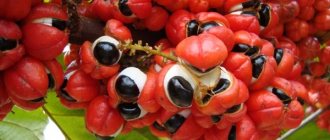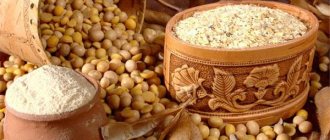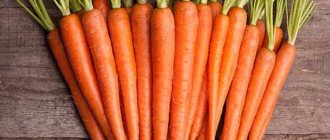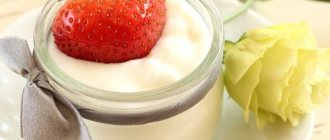| Place | Name | Characteristics in the rating |
| TOP 10 best sugar substitutes |
| 1 | Fructose | Best natural sugar substitute, low glycemic index |
| 2 | Erythritol | Does not increase blood sugar levels, calorie-free product |
| 3 | Sorbitol | 100% natural composition, without GMOs and artificial additives |
| 4 | Stevia | The best premium sweetener, zero glycemic index |
| 5 | Sucralose | Excellent choice for sports nutrition, 600 times sweeter than sugar |
| 6 | Aspartame | Low price, convenient format for releasing sweetener with a dispenser |
| 7 | Cyclamate | The best synthetic sweetener, compliance with safety and quality standards |
| 8 | Acesulfame K | Pleasant taste, versatility of use in everyday life and industry |
| 9 | Neotame | Sweetest synthetic sweetener, pure taste |
| 10 | Xylitol | Widely used for baking and desserts, safe for the body |
Eliminating sugar from the diet is a prerequisite for diabetes mellitus, as well as when switching to special dietary and sports nutrition systems. In order not to give up sweet drinks and dishes, you can use sweeteners when preparing them. The main thing is to make the right choice. Especially for you, we have prepared the TOP 10 of the best artificial and natural sugar substitutes that are absolutely safe for your health.
What to choose as a sugar substitute
So, after reading our article, you yourself can quite form an opinion about which sugar substitute you prefer.
But in general, we can give the following recommendation: if you are not overweight and you do not have a goal to lose weight, you can consume both regular sugar and any natural sweeteners. Substitutes are preferable in that they take time to be absorbed by the body and your blood glucose levels do not rise too sharply. If you intend to lose weight and need something sweet and low-calorie, choose stevia extract or preparations containing sucralose. The main thing is to always remember that before adding any substance to food, you should familiarize yourself with the recommended dosage and never exceed it.
If you do not have these sweeteners readily available, refrain from purchasing preparations based on aspartame or cyclomate. It's better to get fat than to be poisoned, isn't it?
Eat right, don’t forget about physical activity, and then, even if you drink a glass of tea with the most ordinary white sugar, nothing bad will happen.
Sugar substitute is not even close to natural ripe fruit!
How to replace sugar in baking
The diet does not imply starvation and complete abstinence from sweets. Healthy sweets can be prepared using cottage cheese, wholemeal flour, and the addition of dried fruits. You can replace sugar in baked goods with sweeteners of various origins:
- Vanilla sugar is replaced with vanilla extract, essence or powder.
- Brown sugar is less harmful, so a small amount can be added to baked goods; a little powdered sugar will also not harm your figure.
- Contraindication: these products are prohibited for people with diabetes and those losing weight on a strict diet.
Milford - a sweetener for you
This is a cyclamate-based sweetener and that is, this is a complex food supplement that contains lactose. The drug is produced in Germany, which already creates trust. It is registered in the Russian Federation, and there are studies confirming its safety. "Milford" is a sweetener that is produced both in the form of tablets and in the form of drops. It is very convenient to use, 1 tablet can replace 1 teaspoon of regular sugar. And the calorie content of 100 g of the drug is only 20 kcal. This sweetener is very widely used in the production of low-calorie compotes, preserves and jams. The use of this product during pregnancy is not recommended. It is also necessary to note a fairly strong choleretic effect, so regular use in food may be unsafe in the presence of cholelithiasis.

Contraindications
Natural sugar substitutes, the list of the best of which is headed by substances isolated from plant materials, may be completely contraindicated in some cases.
The released substances can have different effects on a particular organism. In addition, products that have additional components added to improve taste can provoke an allergic reaction.
Synthetics have side effects and are therefore not recommended for people susceptible to the following conditions:
- problems with the gastrointestinal tract, expressed by frequent diarrhea and other stool disorders;
- migraine pain, pressure surges;
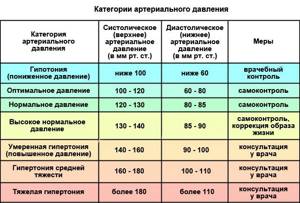
- Unstable blood sugar levels, liver dysfunction.
Benefits and harms of glucose analogues

From the point of view of a diabetic patient, all substances that produce glucose in one way or another during metabolic processing by the body are potentially harmful (or at least require consideration in the overall glucose balance).
Therefore, fructose (an isomer of glucose, easily transformed into it in the body) and sucrose (a disaccharide combining fructose and glucose residues) are potentially harmful for them, although they are completely normal food intermediates and regular metabolites for the human body.
Aspartame should be considered separately, since in the human body it decomposes into two easily digestible amino acids and a methanol molecule - and for this reason, it is not recommended to abuse it (for example, taking more than 50 mg per kilogram of body weight).
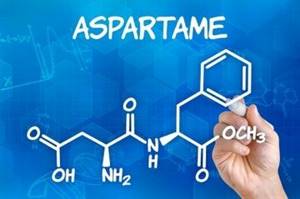
It is also contraindicated in people with phenylketonuria, which is why products containing aspartame must have a “contains a source of phenylalanine” warning on the packaging.
Conditionally harmless surrogates such as cyclamate and, in particular, saccharin are in most cases used due to their low cost - which is why now you can often find saccharin in other food products produced industrially “using simplified technology”.
The issue of the potential carcinogenicity of surrogates such as cyclamate is still being debated with varying degrees of success.
Sweeteners are not suitable for the Dukan diet
- xylitol (it is high in calories, although it speeds up metabolism);
- fructose (calorie);
- sukrasite (useful for dieting due to its low calorie content, but toxic);
- sorbitol (calorie);
- saccharin (a low-calorie, but rather dangerous sweetener, already banned in a number of countries);
- isomalt (very high in calories).
Obviously, some of the listed drugs are quite acceptable for use by people who are losing weight, but the consequences for health in general can be disastrous, which is why it is not recommended to get carried away with such products. Moreover, you can choose less dangerous options.
Myth 2: Artificial sweetener is more harmful than natural sweetener
Many people believe that natural sugar substitutes are healthy and artificial ones are harmful. This misconception is sown by marketers who want to sell their products. Sugar oligarchs often help them, since many natural sweeteners are much more expensive than sugar and are not its competitors.
An example is stevia. Since it is of natural origin, many rules for testing sweeteners for safety do not apply to it. Thus, practically nothing is known about its effect on the body. And all the beneficial properties that are attributed to it are based not on scientific evidence, but on personal opinions.
However, it is positioned on the market as the most harmless sugar substitute.
As for the harm of chemical sweeteners, it is difficult to find safer products. All of them have passed such strict tests that everything is known about them. You can find daily values up to a milligram and a description of all possible side effects. You will read different meanings about stevia in different sources.
And yes, side effects after overeating a product are natural. If you eat 3 kilograms of apples or drink 5 liters of water, your body will also feel bad.
The best manufacturers
Sugar substitutes can be purchased at specialty stores, pharmacies, or grocery stores. Companies that work in the production of dietary, diabetic and fortified food products present their products on the market.
Novasvit
A Russian company with 20 years of experience offers substitutes in tablet, powder and liquid form. The product range is updated annually.
Novasvit produces:
- syrups “Stevia”, “Sucralose”;
- Sucralose sugar replacement tablets;
- powders for preparing all types of sweets “Fructose”, “Sucrolose”, “Stevia”.
Milford
A German company specializing in the production of tablet forms and syrups.
Product range:
- aspartame tablets;
- cyclamate with saccharin in tablets;
- stevia tablets;
- stevia in syrup;
- sucralose with added inulin.
Milford's products have a recognizable design. These are white bottles and jars with laconic but meaningful inscriptions in green and red. This approach is called "pharmacy". He emphasizes that consuming sugar substitutes is a responsibility to your own health.
Review of synthetic sugar substitutes
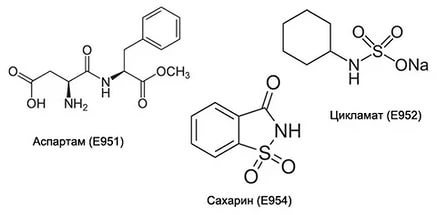
Below are the names and brief characteristics of the most popular artificial sweeteners.
Aspartame
The substance was first obtained in 1965. This is an intermediate compound in the synthesis of an artificial hormone.
The substitute contains calories as well as sugar. Low-calorie aspartame comes from its sweetness: it is 200 times sweeter than sand and refined sugar. During the digestion process, the composition is broken down. Two amino acids and methyl alcohol are isolated.
Aspartame should not be subjected to heat treatment. For example, it is not added to baking dough.
The permitted daily dose is up to 40 mg per 1 kg of body weight.
Acesulfame potassium
Synthesized from acetoacetic acid. Contains no calories and is not digestible. The substance must be excreted from the body unchanged.
The composition is not destroyed during heat treatment. The disadvantage of the sweetener is the metallic taste. Because of this, it is only used in mixtures.
The permissible daily intake is no more than 15 mg per 1 kg of body weight.
Saccharin
Was received in 1879. The synthesis is based on the reaction of anthranilic and nitrous acids with sulfur dioxide, chlorine and ammonia. Another method of preparation is using benzyl chloride.
The composition does not contain calories and is not digestible. 98% of the substance is excreted unchanged from the body.
The sweetener has a bitter taste. Typically used in conjunction with other substitutes. It is not recommended to eat saccharin and beet sugar at the same time. This increases the risk of hyperglycemia.
The permitted daily dose is up to 5 mg per 1 kg of body weight.
Sucralose
This is the sweetest flavor additive. It is 600 times sweeter than sugar. Sucralose has no calories and is not absorbed. It is used for diabetes and for weight loss. The recommended daily intake is up to 15 mg per 1 kg of body weight.
Cyclamate
Synthesized from cyclamic acid. The sweetener masks the unpleasant taste of other artificial substitutes.
The synthetic substance should not be broken down in the human body. It has been established that cyclamate is capable of doing this. The result is the formation of cyclohexamine, a toxic liquid. Cyclamate is contraindicated during pregnancy and breastfeeding.
The permissible daily dose is up to 11 mg per 1 kg of body weight.

The assessment of the harm and benefits of artificial substances has been revised several times. The danger level of synthetic sweeteners has not been precisely determined. Therefore, doctors often advise using natural sugar substitutes.
Natural sweeteners - types of food products
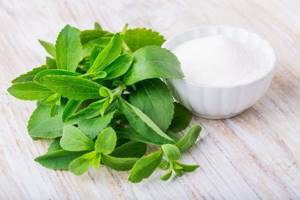
For those who cannot deny themselves sweets, there are natural and artificial sugar substitutes on sale. First of all, for proper nutrition it is worth considering the first group of products.
As a rule, natural sugar substitutes cause the least harm to the body. But at the same time, they are also higher in calories, due to which substitutes are not always suitable for weight loss. It is more difficult to fit them into diets. Unlike artificial ones, natural sweets are removed from the body quite slowly; they affect carbohydrate metabolism. This category includes:
A harmless substitute of natural origin, obtained from a plant. It has a positive effect on health - improves the functioning of the digestive system, normalizes blood pressure, removes harmful substances and excess cholesterol. Stevia prevents aging due to its antioxidant content, contains potassium and other valuable substances. Suitable for metabolic disorders, diabetes, high blood pressure, obesity.
- Fructose is a natural product extracted from berries and fruits.
You can add it to drinks and to make desserts. One of the safest sweeteners. It should be included in proper nutrition to tone the body; fructose is excellent for increased physical activity. It also reduces the risk of caries. The substitute is prescribed on diets for obesity, diabetes, liver disease and some other ailments.
The product has a choleretic effect and increases gastric secretion. Easily digestible, not very sweet in taste compared to its “brothers”. Used for metabolic syndrome, excess weight, diabetes. The daily intake of sorbitol is 16 g.
- Maple syrup, Agave syrup, Jerusalem artichoke syrup are natural sweets that must be included in the diet in limited quantities due to their high calorie content.
However, natural syrups contain many healing components, which makes them a good choice for the diet.
Stevia
One of the natural sugar substitutes, which is the most popular and healthy product, occupying a leading position in the ranking of sugar substitutes. Stevioside is obtained from the extract of the leaves of the South American stevia plant. Its leaves are much sweeter than regular sugar, but it has virtually no calories and has a low glycemic index. Has a number of advantages:
- Contains a small number of calories, due to which it is included in all kinds of diets for weight loss and is recommended for overweight people;
- It has medicinal properties, which helps increase human immunity, normalize high blood pressure, lower cholesterol levels, and improve metabolism;
- Perfect for diabetic nutrition as it helps lower blood sugar;
- Does not have a negative effect on tooth enamel and prevents the growth of bacteria in the oral cavity;
- It can withstand high temperatures, which makes it possible to use it in baking.
The best sweeteners in powder form
One of the popular forms of sweetener release is powder. In appearance, it is similar to sugar, it is convenient to use in baking, and also add to various drinks:
The best sweeteners in powder form:
- Fit Parade No. 7;
- PREBIO SWEET Fitness with prebiotics;
- BIONOVA Erythritol.
Fit Parade No. 7
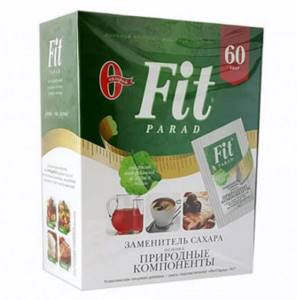
This sweetener is no different in appearance from regular sugar. The taste is also similar, they can sweeten tea, use for cakes or desserts. It is one of the most commonly chosen sweeteners. Used by people struggling with diabetes, overweight and obesity problems, it is low in calories and promotes oral health. Belongs to the group of sugar alcohols. The chemical compound is low in calories and has a low glycemic index; it does not cause a sharp increase in blood sugar levels, is not metabolized by the human body, and is excreted unchanged.
| Characteristic | Meaning |
| Volume | 60, 200, 400 g |
| Release form | powder |
| Manufacturer country | Russia |
Pros:
- sold in different quantities;
- release form to choose from;
- safe for diabetics and children;
- convenient to use in baking;
- sweet enough.
Minuses:
- high consumption;
- Loses sweetness when heated.
Review: “So far the only low-calorie sweetener for baking that I like. I also add it to tea and coffee. Sweet enough, one spoon is enough for drinks, the price would be a little lower, it would be ideal, overall I recommend it to anyone watching their figure.”
Price: from 220 rubles.
Fit Parade No. 7
PREBIO SWEET Fitness with prebiotics
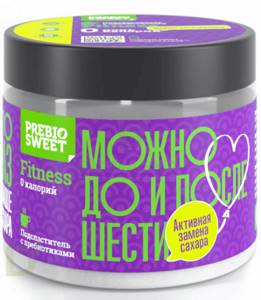
This sweetener will find its use among people looking for a healthy alternative to white sugar, as well as those who care about their figure. Its taste is slightly different from sugar. The product contains erythritol, a sugar polyol that is naturally found in fruits, lactulose, a prebiotic (normalizes microflora and strengthens the immune system), as well as the safest sweetener, sucralose. The product contains 0 calories and is not absorbed by the body when consumed. Perfectly enhances the taste of sweets and goes well with everyday baked goods and dishes.
| Characteristic | Meaning |
| Volume | 150, 250, 300 g |
| Release form | powder |
| Manufacturer country | Russia |
Pros:
- is used sparingly;
- does not leave an aftertaste;
- can be added to baked goods;
- there is a measuring spoon;
- sweet enough.
Minuses:
- inconvenient packaging;
- Not sold in every store.
Review: “Ideal for baking. It does not lose its sweetness and, above all, does not become bitter after baking, like most sweeteners. It’s economical to use, doesn’t leave an aftertaste, and I’m pleased with the affordable price.”
Price: from 250 rubles.
PREBIO SWEET Fitness with prebiotics
BIONOVA Erythritol
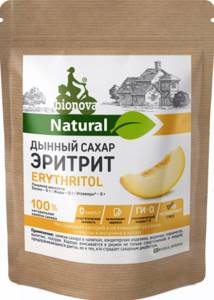
A natural low-calorie sweetener that has 0 kcal. Zero glycemic index - suppresses the action of bacteria that cause dental caries. This makes the product an ideal replacement for traditional sugar, which is very similar in appearance. Suitable for sweetening coffee, tea, desserts and as an ingredient in cakes. The active component erythritol is less sweet, having about 60-70% of the sweetness of sucrose, which should be taken into account in recipes when replacing these products. When consumed it leaves a pleasant feeling in the mouth. The product is not metabolized by the body, is completely eliminated from it and does not affect the intestinal flora at all.
| Characteristic | Meaning |
| Volume | 200, 1000 g |
| Release form | powder |
| Manufacturer country | Russia |
Pros:
- natural;
- good degree of sweetness;
- affordable price;
- different volumes of packages;
- does not leave an aftertaste.
Minuses:
- inconvenient packaging;
- prevalence and availability on sale.
Review: “Best sweetener I've ever eaten. Definitely better than stevia. Ideal for baking. I’ve been using it for years – it doesn’t change the taste, it doesn’t have a metallic aftertaste.”
Price: from 224 rubles.
BIONOVA Erythritol
Stevia
Per 100 grams – 290.79 kcalB/F/U – 0.03/0/43.71
Daily norm: 35-40 g.
A natural sweetener that is obtained from a certain type of herb (stevia), which grows in certain areas of Paraguay and Brazil. Stevia is 25 times sweeter than sugar and has a lower nutritional value, which is great for people who want to lose weight, but this substitute has a pronounced bitter taste. In Japan and Brazil, this substitute is widely used, as it is considered the safest and lowest-calorie among natural sweeteners.
Positive sides
Stevia is quite affordable and has good taste (no bitterness or metallic taste). Well tolerated by diabetics as it does not affect blood sugar levels. With long-term use of stevia, blood vessels are strengthened, the functioning of the liver, gastrointestinal tract and pancreas improves. Also, the use of this sweetener can have a positive effect on sleep, eliminating insomnia and irritability. Moreover, this substance can increase physical and mental performance. Due to its high content of vitamins and microelements, stevia can be recommended in the autumn-spring periods, when the body needs additional biologically valuable substances.
Negative sides
This sweetener is non-toxic, has no harmful effects on the body and has no contraindications.
Natural sweeteners
Most natural sugar substitutes are high in calories, so you should not consume them in large quantities. Due to their significant energy value, they can cause you to gain extra pounds over a short period of time. But when used in moderation, they can effectively replace sugar (since it is several times sweeter) and eliminate the strong desire to eat something sweet. Also, their undeniable advantage is high safety and minimal risk of side effects.
Fructose
Fructose, unlike glucose, does not lead to spikes in blood sugar levels, and therefore it is often recommended for use in diabetes mellitus. But the calorie content of this product is almost the same as that of just sugar - 380 kcal per 100 g. And despite the fact that it is 2 times sweeter than it, which means the amount of fructose in food can be halved, the use of this product is undesirable for those people who want to gradually lose weight.

Scientists have proven that a large amount of fructose in the diet leads to problems with excess weight and obesity.
The craze for fruit sugar instead of regular sugar sometimes leads to the fact that people stop watching in what doses and how often they use it. In addition, fructose is absorbed very quickly in the body and increases appetite. And due to its high calorie content and impaired metabolism, all this inevitably leads to the appearance of extra pounds. This carbohydrate in small doses is safe and even healthy, but, unfortunately, you won’t be able to lose weight with it.
Xylitol
Xylitol is another natural sweetener that is obtained from vegetables and fruits. It is an intermediate product of metabolism and is constantly synthesized in small quantities in the human body. A big plus of xylitol is its good tolerability and safety, since it is not a foreign substance in its chemical structure. A pleasant additional property is the protection of tooth enamel from the development of caries.
The glycemic index of xylitol is approximately 7-8 units, so it is one of the most common sweeteners used for diabetes. But the calorie content of this substance is high - 367 kcal per 100 grams, so you should not get too carried away with it.
If you use xylitol in small quantities, it will not cause excess weight gain, but, however, it will not help you get rid of it. Like fructose, this sugar substitute can be included in a diabetic's menu due to its low glycemic index, but it will not help you lose weight.
Stevia
Stevia is a plant from which the natural sweetener stevioside is industrially obtained. It has a pleasant sweet taste with a slightly specific herbal undertone.
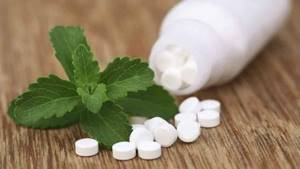
Calorie content of stevia is approximately 18 kcal per 100 g
Its consumption is not accompanied by a sharp change in blood sugar levels, which indicates a low glycemic index of the product. Another advantage of stevia is the absence of harmful and side effects on the human body (subject to the recommended dosages). Until 2006, the question of the safety of stevioside remained open, and various animal tests were conducted on this matter, the results of which were not always in favor of the product. There were rumors about the negative impact of stevia on the human genotype and the ability of this sweetener to cause mutations. But later, when checking the conditions of these tests, scientists came to the conclusion that the results of the experiment cannot be considered objective, since it was carried out under inappropriate conditions.
To date, the World Health Organization has concluded that stevia does not have toxic, mutagenic or carcinogenic effects.
Moreover, its use often leads to an improvement in the well-being of patients with diabetes and hypertension. Clinical trials of stevia are still being carried out, since all the properties of this herb have not yet been fully studied. But given the low calorie content of the product, many endocrinologists already consider stevia one of the safest sugar substitutes that do not lead to weight gain.
Erythritol (erythritol)
Erythritol is one of those sweeteners that people began to produce from natural raw materials on an industrial scale relatively recently. By its structure, this substance is a polyhydric alcohol. The taste of erythritol is not as sweet as sugar (it is about 40% less pronounced), but its calorie content is only 20 kcal per 100 g. Therefore, for overweight diabetics or simply people who want to lose weight, this sweetener can be a good choice alternative to regular sugar.
Erythritol does not have any effect on insulin production, so it is safe for the pancreas. This sweetener has virtually no side effects, but since it has been used not so long ago, there is no precisely confirmed data on its effect in comparison of several generations. It is well tolerated by the human body, but in high dosages (more than 50 g at a time) can cause diarrhea. A significant disadvantage of this substitute is its high cost compared to the prices of regular sugar, stevia or fructose.
The most popular sweeteners
Saccharin (E954)
This is the first artificial sweetener to start our list. So, rejoice, young chemist, saccharin is 2-sulfobenzoic acid imide. Colorless crystals, poorly soluble in water. Saccharin is many times sweeter than sugar and contains no calories. On its basis, drugs such as Sukrazit have been developed.
- Synthetic origin.
- Suitable for those who want to lose weight, as it does not contain calories.
- There are hypotheses that consuming saccharin may cause cancer. But they have not been scientifically proven, so decide for yourself whether to eat this product or not. The drug is currently approved for use and is widely used in food production.
Aspartame (E951)
The sweetener aspartame in the human body breaks down into two amino acids and methanol.
Like saccharin, aspartame is a chemical whose name sounds like L-Aspartyl-L-phenylalanine methyl
Aspartame has a calorie content close to sugar, but since the amount required to obtain a sweet taste is truly negligible, these calories should not be taken into account. There have been no studies that have revealed the harmful effects of aspartame on the human body.
However, it is known for certain that in the body it breaks down into two amino acids and methanol. Amino acids, as we know, do not bring us any harm, on the contrary, but methanol, in turn, is a strong poison.
- Synthetic origin.
- Suitable for those who want to lose weight, due to the fact that very little is required for the sweet taste.
- The breakdown of aspartame produces methanol, which is subsequently oxidized to formaldehyde. This substance affects the nervous and cardiovascular systems of the body. Therefore, we do not recommend using aspartame as an alternative to sugar. By the way, it is found in carbonated drinks, chocolate and chewing gum.
Cyclamate (E952)
Cyclamate or sodium cyclamate is a chemical that is widely used in the production of carbonated drinks. Cyclamate contains no calories and is not absorbed by the body. At the moment, cyclamate is prohibited in the United States, as it can cause disturbances in the embryonic development of the fetus in pregnant women.
- Synthetic origin.
- Suitable for those who want to lose weight, does not contain calories.
- Can cause disturbances in fetal development in pregnant women. Strictly prohibited for pregnant women. In general, we do not recommend using this substance, even if you are not a pregnant woman, but, say, a well-fed and well-mannered man.
Stevioside (E960)
The only natural sweetener is stevioside.
Stevioside is the first natural product on our list of sweeteners. It is obtained from. The substance has a faint herbal aftertaste and dissolves in water, but not instantly, but within a few minutes. Stevioside contains some calories, but they are very small and may not count for anything overall.
Scientific discussions have been raging around stevia extract since the 30s of the twentieth century. With varying success, this substance is either accused of having mutagenic properties, or again rehabilitated. Currently, no evidence of harmful effects of stevia extract on the body has been found.
- Natural origin.
- Suitable for those who want to lose weight.
- There is a hypothesis that stevioside may be a mutagen, but it has not been confirmed by anything.
Sucralose (E955)
Sucralose is a relatively new member of the sweetener family, first discovered in the 80s. No harmful effects of sucralose on the human body have been identified. This supplement is not absorbed by the body.
- Synthetic origin.
- Suitable for those who want to lose weight, as it is not absorbed by the body.
- No harmful effects on the body have been identified.
How to replace sugar with proper nutrition
To feel well, maintain health and an attractive physical shape, you need to adhere to a balanced diet. You can replace sugar with proper nutrition with the following products:
- berries;
- fruits;
- dried fruits;
- honey.

All these products contain large amounts of natural sugar - fructose. Excess of any sugar leads to fat deposits, deterioration of the cardiovascular system, and the formation of caries. To make up for the deficiency, a person will need 2-3 medium-sized fruits per day or a small handful of dried fruits, berries, and 2 teaspoons of honey. The body can do without these products, because any food is broken down into glucose (a type of sugar), but the pathological craving for sweets, imposed in childhood, forces us to eat sweets.
Are sweeteners beneficial? Video
Everyone knows that sweeteners are beneficial for people with diabetes, but do they benefit other groups of people? It turns out there is. For example, the use of synthetic sweeteners is indicated for people with weak tooth enamel that is at risk of developing caries.
Synthetic sugar substitutes have no calories. This makes them a valuable product for those who want to lose weight, but cannot resist eating sweets. Sweeteners such as sucrasite, aspartame, saccharin and others not only have no calories, but are also much sweeter than regular sugar. For example, one hundred tablets of saccharin or E-954 are equal in sweetness to approximately 12 kilograms of natural sugar.
The most powerful sugar substitute is Lugdunam (lugduname), it is almost 300 thousand times sweeter than natural sugar. For a standard cup of drink, only 30 millionths of a gram of this substance or one small crystal would be needed. A kilogram of sweetener would be enough for an entire ten-lane swimming pool.
Useful and harmful properties
Natural sugar substitutes (the list of the best is presented below) have the following advantages and disadvantages.
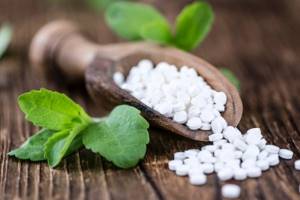
| pros | Minuses |
|
|
How to choose
If you are forced to give up sweets due to a medical condition, your doctor will likely recommend the most suitable sugar substitute for diabetes.
However, the critical mind, which questions and tests everything, is not satisfied with the opinion of authority and will try to make an informed decision on such an important issue, choosing better on its own.
Even among sugar substitutes containing exclusively natural ingredients, not everything is simple
There are several points to pay attention to: . Since you will be dealing with chemical products, give preference to a company with a reputation that specializes in the production of dietary food supplements. Read the product ingredients carefully to the end
Along with sugar substitutes from natural sources, it may contain artificial ones, such as aspartame, cyclamate and their analogues. Combination drugs allow you to reduce the daily intake of one of the components. Test the packaging: is it well thought out and does it allow you to accurately measure a single dose?
- Since you will be dealing with chemical products, give preference to a company with a reputation that specializes in the production of dietary food supplements.
- Read the product ingredients carefully until the end. Along with sugar substitutes from natural sources, it may contain artificial ones, such as aspartame, cyclamate and their analogues.
- Combination drugs allow you to reduce the daily intake of one of the components.
- Test the packaging: is it well thought out and does it allow you to accurately measure a single dose?
When choosing how to add your favorite sweet taste to dishes, planning your diet, carefully read the instructions for use and remember: too much is not healthy. Even the purest water, consumed in the amount of 1 bucket at a time, can be fatal. Look for answers to your questions, take care of your health wisely and don’t get sick.
Which sweetener is best to use on the Dukan diet?

- Aspartame is considered by the author himself as one of the best options, but it is difficult to cook with it, since it is unstable when heated;
- Cyclamate is low in calories, but is contraindicated in a number of diseases;
- Acesulfame potassium also contains no calories, is not absorbed and does not cause allergies, but is dangerous for the heart and excites the nervous system;
- Stevia is the only natural sweetener that has no contraindications.
A variety of drugs are created based on these substances, so you should carefully read the composition to choose the optimal sweetener. Popular brands include Rio, Fit Parad, Novasweet, Sladis, Stevia Plus, Milford.
Sweetener Rio
Sweeteners of this type are characterized by zero calorie content, which determines the choice in their favor. The basis of this remedy is cyclamate, therefore the drug has contraindications. It should not be used by pregnant and lactating women, those who may have hypersensitivity to its components, as well as people who have kidney, gastrointestinal and liver diseases.
Sweeteners Novasweet
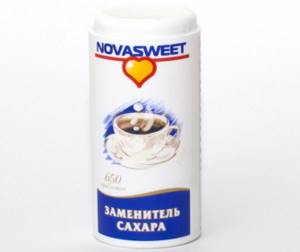
Novasweet produces several types of sugar substitutes, which differ in composition. Thus, the assortment includes tablets based on cyclamic acid, fructose, sorbitol, aspartame, sucralose and supplements with stevia ─ almost all options for substitutes are present. These products do not contain components such as isomalt, acesulfame potassium, but there is usually no special need for them. The choice is large, and literally every person who needs to give up real sugar can find a suitable solution for themselves.
An additional advantage of the products of this particular brand is the inclusion of vitamins and minerals, which are extremely necessary when following any diet.
Sladis: a wealth of choice
The same wide range of products as Novasweet is offered by the Sladis brand. The manufacturer produces fructose, sorbitol and a series of cyclamate-based sweeteners. A person who is losing weight will be most interested in the substitutes of this brand from the Sladis Elite series. It is based on stevia extract and sucralose.
Fit Parad: natural and harmless sweeteners
Under the Fit Parad brand, a whole series of dietary supplements and food products is produced - cereals, cocktails, jelly, teas and, of course, sweeteners. The manufacturer offers several options that differ in composition. Fit Parad No. 1 includes erythritol, sucralose, stevia extract (stevioside) and Jerusalem artichoke. Product number 7 contains the same components, only instead of Jerusalem artichoke there is rosehip extract. Perhaps this saxam can be considered natural on a par with pure stevia. Erythritol is a substance that is extracted from starchy foods and is also found in some fruits. Sucralose is the only component that is obtained by repeated processing of sugar, but its harm to health has not been proven, despite existing controversy.
Natural sugar substitutes
- Stevia
- Fructose, honey and some syrups
- Coconut sugar
- Lucuma powder
- Maltitol, sorbitol and xylitol
There are others among natural sweeteners, but in this article we will consider only those that are acceptable for diabetes.
It also makes no sense to talk about substitutes used in industry that are not commercially available.
Let's not talk about substitutes, whose calorie content and GI are comparable to sugar.
Stevia
An excellent natural, carbohydrate-free sugar substitute. Detailed article here.
It looks like a white powder. In large quantities it may taste bitter.
Sold in the form of powder, tablets, syrup and crushed leaves. Quite expensive compared to other sweeteners.
When using XE and GI are not taken into account. There are also zero calories.
It has no contraindications and is considered therapeutic . A favorite of most diabetics.
Fructose, honey and some syrups
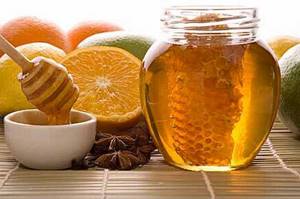
Such sweeteners are superior to sugar due to their low glycemic index. At the same time, they are high in calories and carbohydrates. It is necessary to count their grain units.
A detailed article about fructose is here.
Not all herbal syrups, called sugar substitutes, can be used for diabetes. Many of them are completely comparable to sugar, even in terms of GI. And they differ only in greater benefits for the body.
Acceptable syrups for diabetes:
- Agave syrup . Glycemic index from 15 to 30. Contains inulin, which helps reduce surges in blood sugar and removes some of the carbohydrates. 2 times sweeter than sugar, which is another plus for people on a diet. The calorie content is the same as sugar. The price is average, especially considering the economy.
- Artichoke syrup . Glycemic index is 20. Much sweeter than sugar. Calorie. Contains not only inulin, but also a little insulin. Therefore, it is very useful for use in diabetes. The disadvantage is the price, which is quite expensive.
- Maple syrup . Glycemic index - 55. Quite high in calories. The main advantage is taste. Very similar to sugar syrup, so it is ideal for preparing many dishes. It has a rich vitamin composition. Due to the GI on the verge of the green zone, it is permissible in very small quantities for diabetes. The main importer is Canada. Therefore the price is high.
- Jerusalem artichoke syrup . Another ideal natural sweetener for diabetics. In addition to low GI (15), it is very rich in inulin. I already wrote in an article about Jerusalem artichoke and diabetes about how beneficial it is. It has the taste of young honey. Affordable.
Coconut sugar
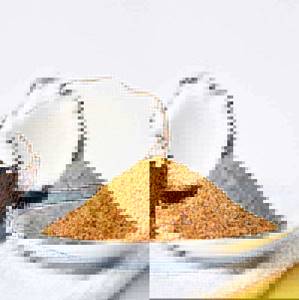
Glycemic index – 35. Has a caramel taste and aroma. Calorie content is the same as regular sugar. A distinctive feature is the presence of glucagon . This substance helps to lose weight and strengthen the circulatory system.
Sugar is also rich in magnesium, which is very useful for diabetes.
We can say that this natural sweetener is an excellent alternative to sugar, as long as you have the money.
Honey
Our beloved honey is also an excellent natural sugar substitute. An article about honey and diabetes is here.
Honey has a glycemic index ranging from 19 to 70, depending on the degree of sugar content. High calorie content.
Useful due to its rich vitamin composition. Very cheap compared to other sweeteners in this group.
Lucuma powder
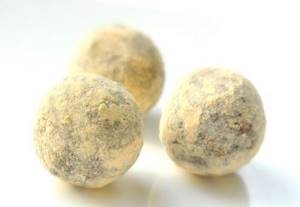
It has a low glycemic index - 15. It has a delicate taste and light maple aroma. A distinctive feature is a huge amount of beta-carotene . That is why it is considered a good stimulant of the immune system.
Recommended for breastfeeding women.
Maltitol, sorbitol and xylitol
This category contains relatively natural sugar substitutes. They seem to be obtained from natural substances (husks, tree bark, starch), but do not have such a rich vitamin composition as the sweeteners from the previous paragraphs.
Rating
The purchase of substitutes must be conscious. There are known cases of excessive abuse of sweeteners due to the fact that the shape and size of the tablets differ significantly in taste and size from the usual serving of sugar. Natural substances top the list of best sweeteners, but synthetics may be more effective if weight loss is your ultimate goal.
Fructose (Novasvit)
The substitute is produced by the Novasvit company in powder, packaged in 250 g. The packaging indicates that it is fruit sugar. The sweetener is suitable for use in baked goods, drinks, and as an additive to desserts. Fructose has a low glycemic index and is indicated for diabetics. Fructose is allowed for pregnant women and children, and has almost no contraindications.
Flaws:
- energy value is equal to the energy value of sugar;
- Excessive consumption of fructose leads to obesity.
The cost of a 250 g pack of powder starts from 169 rubles.
Melon sugar (Binova)
Erythritol is available in powder, low-calorie, and safe.
The zero glycemic index allows its use in diabetics with the second degree of the disease. The cost of 200 g of powder starts from 297 rubles.
Sorbitol (Novasvit)
Powder with inulin for baking and drinks. It has a low glycemic index and has a pleasant aftertaste. The addition of inulin is aimed at activating the excretion of the product. The cost of a 500 g package starts from 157 rubles.
Stevia (Binova)
Liquid stevia extract is produced in a convenient bottle with a dispenser. Pressing releases 0.5 g of product, which in terms of energy value is equivalent to 5 grams of sugar.
The company produces 3 types of liquid sweetener:
- natural stevia;
- stevia with inulin;
- stevia with inulin and an additional component to improve taste.
The cost of a bottle starts from 215 rubles.
Sucralose (Milford)
Synthetics are produced in a jar with a dispenser.
One press releases one tablet. Tablets are convenient to use when making tea, but difficult to add to dough or desserts. The cost of one can with a total weight of 14 g starts from 320 rubles.
Aspartame (Novasvit)
The synthetic is available in a jar with a dispenser. One jar contains 350 tablets. 1 tablet of aspartame has the same energy value as 1 teaspoon of sugar.
The disadvantage of the tablet form is the inconvenience of adding to desserts.
The compounds inside the substance are destroyed when heated, so this type of substitute is unsuitable for making hot tea and baking. The cost of one package of Aspartame starts from 180 rubles.
Sucralose (Binova)
The bottle with a dispenser is additionally equipped with a membrane to prevent liquid syrup from leaking, so it is convenient to take it with you on the road or to work. The dispenser is designed to accurately dispense one norm equal to 5 g of sugar.
Inulin has been added to sucrolose, isolated in an innovative way and transferred to a liquid state. Inulin is a new generation prebiotic that is responsible for the safe absorption or excretion of foods. The cost of a sweetener in a bottle with a total weight of 80 g starts from 188 rubles.
Cyclamate (Milford)
Liquid sweetener in a bottle with a narrow nose for economical use. This syrup is most often purchased for adding to baked goods. 200 ml. product corresponds to 2.6 kg. Sahara.
Purified water is added to the composition for structuring. Sorbic acid acts as a preservative. The cost of the product starts from 150 rubles. for 1 bottle of 200 ml.
Xylitol (Sweet World)
A substitute in powder form, which is intended for preparing various dishes. It is packaged in paper bags of 200 g for retail.
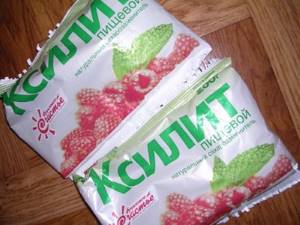
Flaws:
- excessive intake can lead to the development of dysbiosis;
- Long-term use provokes a laxative effect.
The cost of the product starts from 120 rubles.
Sorbitol (Sladis)
The company produces substitutes in solid form. Cubes of pressed sorbitol resemble refined sugar in shape. Inulin is added to sorbitol to improve digestion. The cost of a package with a total weight of 250 g starts from 250 rubles.
Natural sugar substitutes, a list of the best ones with the designation of their positive qualities helps you choose the right option, can be a godsend for one person, but cause harm to another person. When choosing, you need to focus on your own health.
Expert advice on choosing substitutes from a variety of existing products:
- Athletes and those who give up sugar due to dietary restrictions are advised to choose synthetics with a targeted type of effect. It is important to pay attention to how and how quickly elements are eliminated from the body.
- Diabetics, as well as people suffering from various diseases of the cardiovascular system, are advised to stick to natural substances. From the list, it is better to choose stevia or erythrol, which are contained in plant materials. The main determining criterion may be the choice of release form.
- Pregnant women are most often advised to give preference to stevia due to the safety of use.
Sugar substitutes can improve the quality of life, stabilize the gastrointestinal tract, and reduce the risk of developing serious diseases. When choosing a product from the list of the best natural or synthetic sweeteners, you need to choose one that can be suitable for daily use.
Review of natural sugar substitutes
Below are the names and brief characteristics of the most popular natural sweeteners.
Xylitol
The sweetener is produced from corn cobs, cotton husks, sunflower husks and other plant waste. Xylitol is a useful component of chewing gum. It prevents the development of caries.
Its calorie content is close to sugar, but its absorption does not require insulin. The sweetener can be used for diabetes. It will not help you lose weight, as it has a high calorie content.
As a flavoring additive, xylitol cannot be called absolutely harmless. It can cause gastric disorders.
You can consume up to 10 g of xylitol per day.
Sorbitol
This sweetener is made from glucose. Found naturally in algae and stone fruits. Sorbitol has fewer calories and is less sweet than sugar. The sweetener is absorbed very slowly, so it does not increase blood glucose levels. Useless for weight loss. It has too many calories.
Sorbitol is used in chewing gum. It is added to mixtures to mask the taste of the medicine. It tolerates heat treatment well and is suitable for baking and home canning. It is not recommended to use sorbitol if you have digestive disorders.
Safe daily allowance is up to 40 g.
Fructose
The sweetener is found in sweet fruits and honey. It is part of sugar - it breaks down into glucose and fructose. Fructose is equal in calories to sugar. This sweetener will not help you lose weight. It is recommended to consume no more than 40 g of fructose per day.
Stevioside
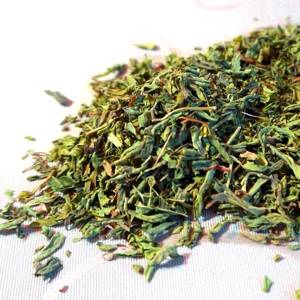
Contained in its pure form in stevia leaves. The sugar substitute is a concentrated (condensed) extract. It is obtained from plants without the use of chemical catalysts.
The natural sugar substitute is well absorbed and helps normalize digestion. Contains no calories. Not an allergen. Serves as an additional source of vitamins and microelements. Has a natural sweet taste. Retains all its properties during heat treatment.
Stevioside is considered the best sugar substitute. Why?
- It's safe. Stevia has been used for centuries and its effects have been well studied. Side effects and allergic reactions are excluded. Individual intolerance is extremely rare.
- No calories. Stevioside is approved and recommended for overweight. Included in healthy eating programs.
- There are vitamins and microelements. Stevioside on the menu is an additional source of nutrients.
- Stevia tastes good. It's pure sweetness or a hint of licorice candy, depending on the plant variety and harvest time.
Use of stevioside
A sweetener is used for diabetes and for the treatment of obesity. The product is useful for hypertension. The approximate daily intake is up to 2 mg per 1 kg of body weight. This is half a teaspoon or 100 drops of concentrated extract. 4 drops replace one cube of refined sugar.
The daily guideline consumption of stevia in terms of sweetness is equal to 25 pieces of refined sugar. Usually this is quite enough. But if you want more, you can. Stevia has no contraindications, no calories, and therefore no restrictions.
Do you want to buy a large package with the lowest price per kg?
You can get it here at a price of RUB 11,017/kg. A package is enough for a year for a family of 2-3 people. Delivery in Moscow within one working day. Order a natural, healthy sugar substitute!
The best sweeteners in liquid form
Liquid sugar substitutes are supplied in convenient packaging that allows you to easily dose the product. They are easier to mix with water and are used to sweeten cold and hot drinks, as well as baked goods and other dishes.
The ranking of the best sweeteners in liquid form includes:
- Smart Fit Stevia;
- ROYAL FOREST Jerusalem artichoke syrup;
- Milford Suss.
Smart Fit Stevia
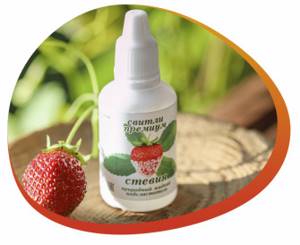
It is a sweetener with a very low glycemic index. It contains natural sweeteners: sweet leaves of the Stevia plant, erythritol and sucralose. It is used as a healthy, natural and calorie-free substitute for sugar and artificial sweeteners. The product is useful for the following diseases: diabetes - does not increase blood glucose levels, obesity - does not contain calories and additionally suppresses appetite, caries - prevents its formation. It is also used in the treatment of tobacco and alcohol addiction. Liquid product dosed drop by drop, 1 drop = 1 teaspoon of sugar. It can also be used as a baking sweetener and is heat stable.
| Characteristic | Meaning |
| Volume | 30 ml |
| Release form | liquid |
| Manufacturer country | Russia |
Pros:
- without bitterness;
- can be added to baked goods;
- economical consumption;
- convenient to dose;
- sweet.
Minuses:
- weakening effect;
- short period of storage after opening.
Review: “Sweets have always been my biggest obstacle to dieting. As a result, I never managed to lose weight. A friend recommended this liquid sweetener to me because she herself had a similar problem. Liquid stevia is an excellent sugar substitute and contains no calories. I’ve been using it for a year now and during this time I’ve lost 10 kg.”
Price: 250 rubles.
Smart Fit Stevia
ROYAL FOREST Jerusalem artichoke syrup
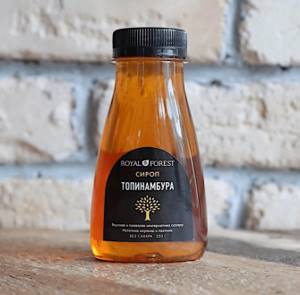
The best natural sweetener. It perfectly strengthens and restores the body, especially recommended for people after chemotherapy. It has a regenerating effect, supports the growth and development of body functions. It strengthens the immune system and helps with chronic fatigue. Made from 100% juice of Jerusalem artichoke tubers with the addition of an acidity regulator. It is a rich source of potassium, iron and thiamine. It also contains a lot of inulin, which is well tolerated by diabetics. In combination with pectins, inulin helps remove toxins from the body.
| Characteristic | Meaning |
| Volume | 250, 1350 g |
| Release form | liquid |
| Manufacturer country | Russia |
Pros:
- sweet;
- completely natural;
- without bitterness;
- convenient to dose;
- honey consistency.
Minuses:
- short shelf life;
- high consumption;
- expensive.
Review: “Health care is my passion. I try to eat rationally, do a lot of sports, but I also love delicious dishes. Jerusalem artichoke syrup is very suitable as a sweetener for many dishes and desserts. This is the best product of its type that I have used. I recommend".
Price: from 406 rubles.
ROYAL FOREST Jerusalem artichoke syrup
Milford Suss
The sugar substitute for diabetes comes in a very effective and economical package that can easily fit into a bag or backpack. 2.5 ml of liquid sweetener equals the sweetness of 2 teaspoons of sugar. Made on the basis of sodium cyclamate, it is recommended for people on a diet who care about their health and slim figure. The product is heat resistant, meaning it is suitable for sweetening coffee and tea without altering its taste. Due to the fact that the product is liquid, there are no problems with solubility. It is not metabolized by the human body and is excreted in the urine.
| Characteristic | Meaning |
| Volume | 200 ml |
| Release form | liquid |
| Manufacturer country | Germany |
Pros:
- identical in taste to sugar;
- convenient dosage;
- pleasant taste;
- can be used in baking;
- It is used sparingly.
Minuses:
- synthetic components;
- rarely found on sale.
Review: “Very pleased with the taste and service life of one bottle. I recently tried making a cake and added a sugar substitute instead. I was afraid that under the influence of temperature the bitterness would come out. Luckily nothing like that happened and the cake turned out great. I recommend it, but in limited quantities.”
Price: 105 rubles.
Milford Suss liquid
Synthetic sugar substitute sweetener
It is also called Sweetly, Slastilin, Nutrisvit, Shugafri, depending on the manufacturer. Aspartame is a synthetic sweetener that is 160 to 200 times sweeter than natural sugar and contains no calories. It is produced in China, the EU, Japan, Korea and the USA. The largest portion of aspartame demand is in the United States.
Aspartame is in demand, takes second place in the ranks of sweeteners and is included in a huge number of soft drinks, hot chocolate, chewing gum, sweets, yogurts, and also replaces sugar in the production of medicines.
But not everything is as good as it seems. When heated, aspartame breaks down into toxic substances - methanol and phenylalanine, which can cause headaches, digestive disorders and others.
The daily safe intake is no more than 50 mg/kg body weight. It is also produced in the form of tablets (1 tablet = 3.2 g of sugar). Aspartame is used for diabetes, obesity and diseases where sugar intake is prohibited.
This is a white sweet powder, a sugar surrogate, in the form of colorless crystals with a sweet taste. They are slightly soluble in water, 300-500 times sweeter than sugar. Contains carcinogens. It is used instead of sugar for diabetes, and in the food industry as a food additive E-954. It gives a metallic taste, is not absorbed by the body, and is excreted in the urine.
The permissible daily consumption dose is 5 mg per 1 kg of body weight; excess consumption can cause cancer. Saccharin negatively affects the intestinal microflora. Its systematic consumption together with sugar is a risk factor for hyperglycemia.
SODIUM CYCLAMATE
Synthetic sugar substitute, calorie-free, 30-50 times sweeter than sugar. It poses a great threat to health in case of kidney failure, during pregnancy and breastfeeding.
Artificial sugar substitute for diet and healthy eating
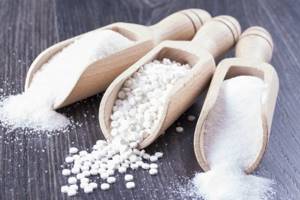
Nutritionists call synthetic analogues of regular sugar sweeteners. They are low in calories, which is why such products can be included in the diet of people following certain diets. Also, an artificial alternative to sweets does not affect carbohydrate metabolism.
The most common types of synthetic sweet additives are:
At the moment, this artificial sweetener is considered the safest for health. It is approved in Russia and European countries, suitable for use by pregnant women and children.
This substitute is sold in pharmacies and is 200 times sweeter than sugar. Aspartame is mainly recommended for weight loss, but the product can also be included in a proper diet. The question of its safety is ambiguous. It is recommended to add aspartame only to non-hot foods and drinks.
And this artificial sweetener can be purchased in pharmacies, it is sold in the form of tablets. The substance is 500 times sweeter than regular sugar. Therefore, it is necessary to consume saccharin in small quantities. For a healthy person, the daily norm is no more than 5 g. This is 2-4 tablets. If the dose is exceeded, increased urination and an unpleasant taste in the mouth may occur.
A synthetic additive, more common in Asian countries. Sodium cyclamate is approximately 40 times sweeter than sucrose. The substance is resistant to high temperatures. In some countries in Europe and America, the sweetener is prohibited by law.
Advantages and disadvantages
Each type of refined sugar substitutes has its own disadvantages and advantages.
The advantage of natural sweeteners is that they are harmless, but during a diet for weight loss they are not the best helpers.
Artificial sweeteners are mostly sweeter than sugar, but tend to increase appetite despite their low calorie content.
Fructose is completely absorbed by the body and does not cause a sharp jump in blood sugar. It can be consumed by diabetics and children without harm to health. But if you regularly exceed the permissible limit, diabetes, liver disease, and weight gain may develop.
The benefit of sorbitol is that it normalizes intestinal microflora and promotes the outflow of bile. In case of dental diseases, it does not cause their progression. But exceeding the norm (40 g per day) can cause stool upset.
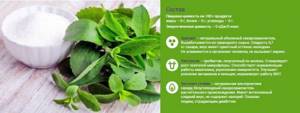
Stevia is the best option for losing weight due to the absence of contraindications and zero calorie content, but its disadvantage can be considered a slightly herbaceous taste.

